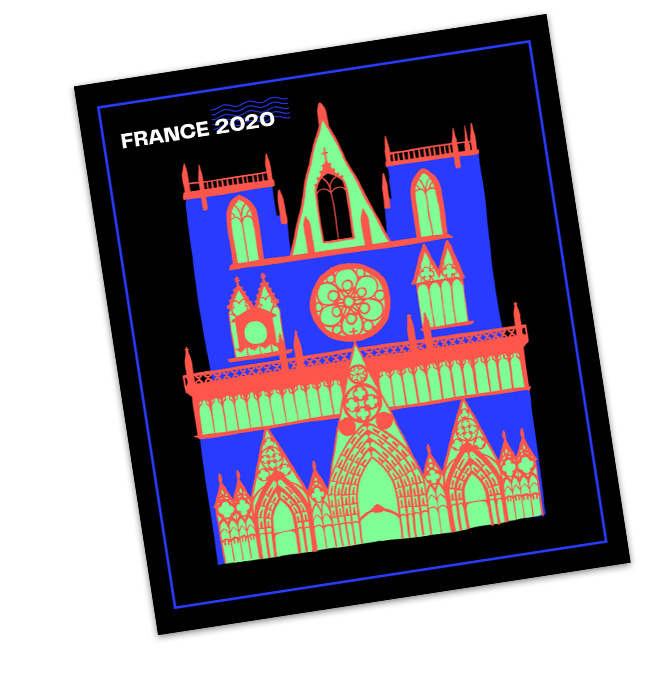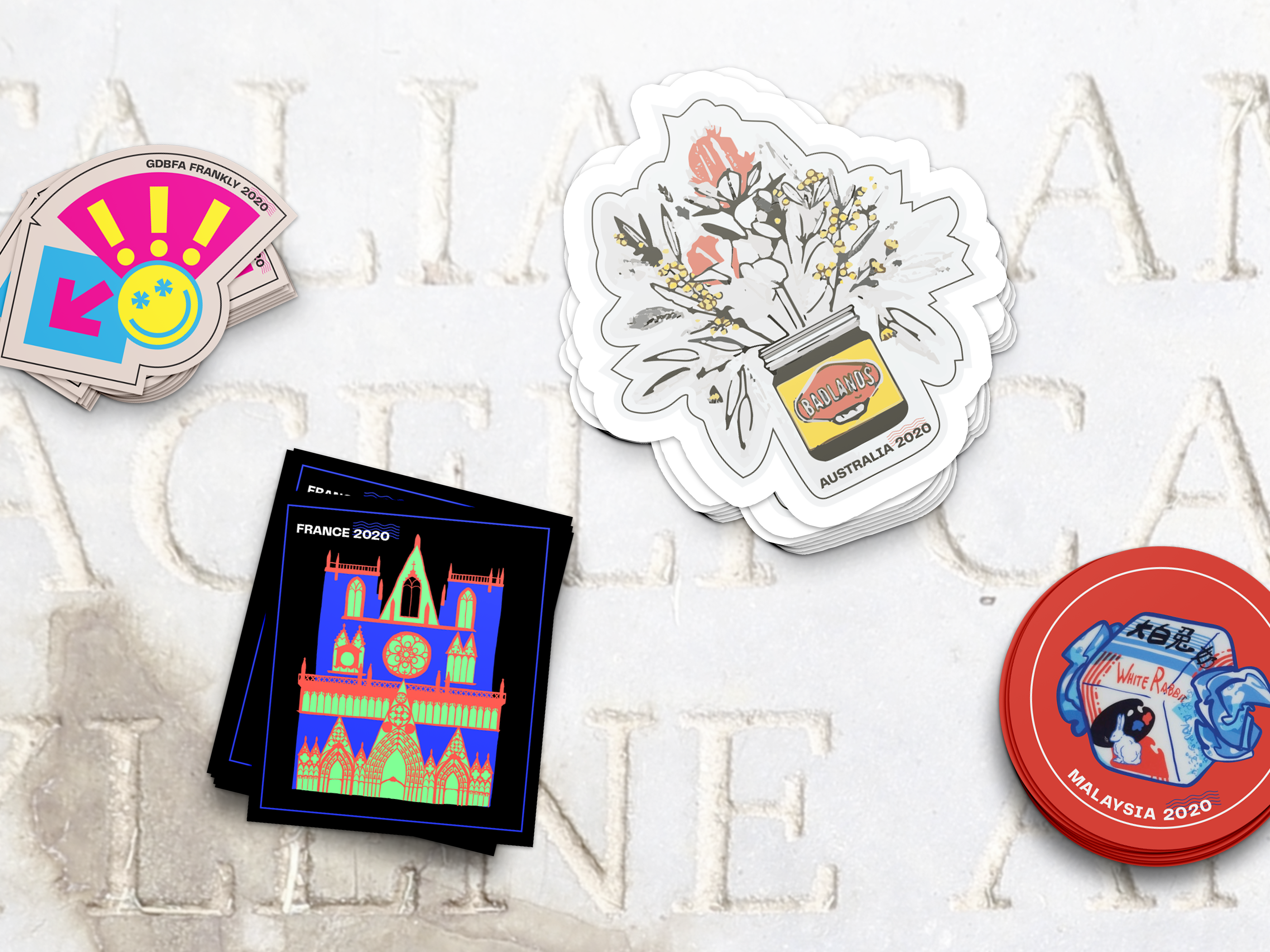
FayetteVoyage ︎︎︎
2020
systems design design research human-centered design identity system
FayetteVoyage is the culminating project of my BFA Graphic Design degree. The design ecosystem aims to intervene and improve the current relationship between international students and their host campuses, addressing the research question:
How might we utilize the University of Arkansas campus space to create touch points for interaction between international and host-national students?
How might we utilize the University of Arkansas campus space to create touch points for interaction between international and host-national students?
Featured in Frankly,
Learn more about Frankly, my graduating class’ virtual senior show that features this project.
View full research report
Learn more about Frankly, my graduating class’ virtual senior show that features this project.
View full research report
A SOCIAL DISCONNECT
A college education equips young adults with much more than a specialized degree as they enter their independent adulthood; it provides social experiences that guide them to be informed and empathetic as they find their roles within our society. A major resource to the higher education system is the international study abroad program. Students who are abroad—and the communities that host them—can expand their perspectives by exposing themselves to the views ideas of people with different cultural backgrounds and experiences.
However, there is a major social flaw within this program that prevents us from maximizing these experiences: Frankly, international and host-national students feel a little awkward around each other. It is this discomfort that inspired me to research how this social system operates at the University of Arkansas.
However, there is a major social flaw within this program that prevents us from maximizing these experiences: Frankly, international and host-national students feel a little awkward around each other. It is this discomfort that inspired me to research how this social system operates at the University of Arkansas.

ZOOMING OUT
In my initial investigation, I delved into literature related to my assumptions of the challenges international students face. This literature covered a broad range of topics including English skills, culture shock, and even campus way-finding systems. While these topics are distinct, the challenges all point to a common solution: connecting with host-national students. However, the research revealed that the ability to do so is also the primary concern of international students as they prepare to go abroad.
Evidently, their concerns are valid; they do face challenges in forming relationships due to cultural differences and misunderstandings. International and host-national students don’t usually develop deep enough connections to adjust to one another’s speaking habits because the latter already have well-established friendship networks. When international students can’t break into these groups, they end up bonding with each other instead over shared experiences. Not only are international students losing out on the full host-culture experience, but host-national students are missing out on learning from diverse perspectives. There is a lost opportunity for personal growth and a rich education for both groups.
Evidently, their concerns are valid; they do face challenges in forming relationships due to cultural differences and misunderstandings. International and host-national students don’t usually develop deep enough connections to adjust to one another’s speaking habits because the latter already have well-established friendship networks. When international students can’t break into these groups, they end up bonding with each other instead over shared experiences. Not only are international students losing out on the full host-culture experience, but host-national students are missing out on learning from diverse perspectives. There is a lost opportunity for personal growth and a rich education for both groups.
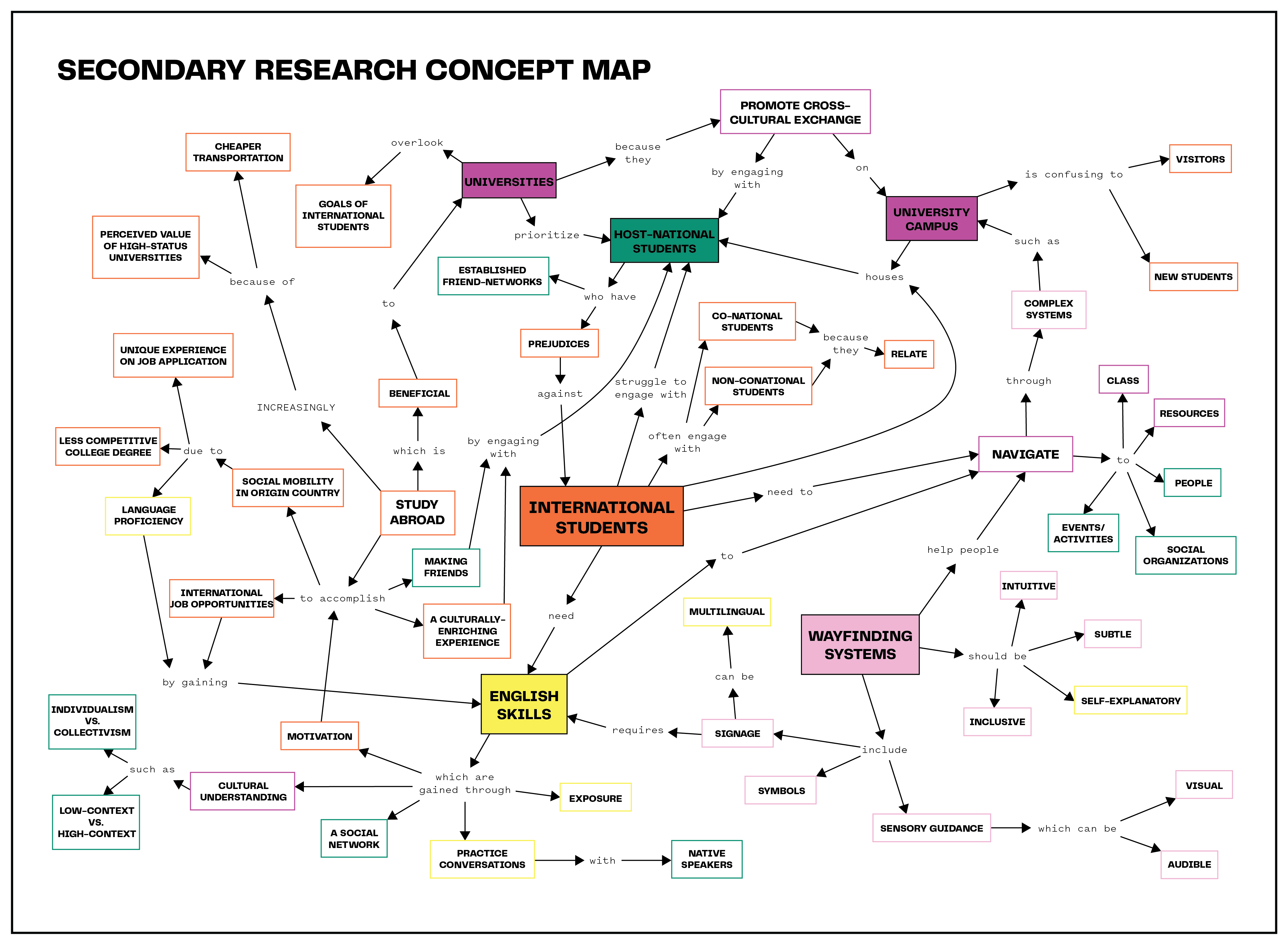

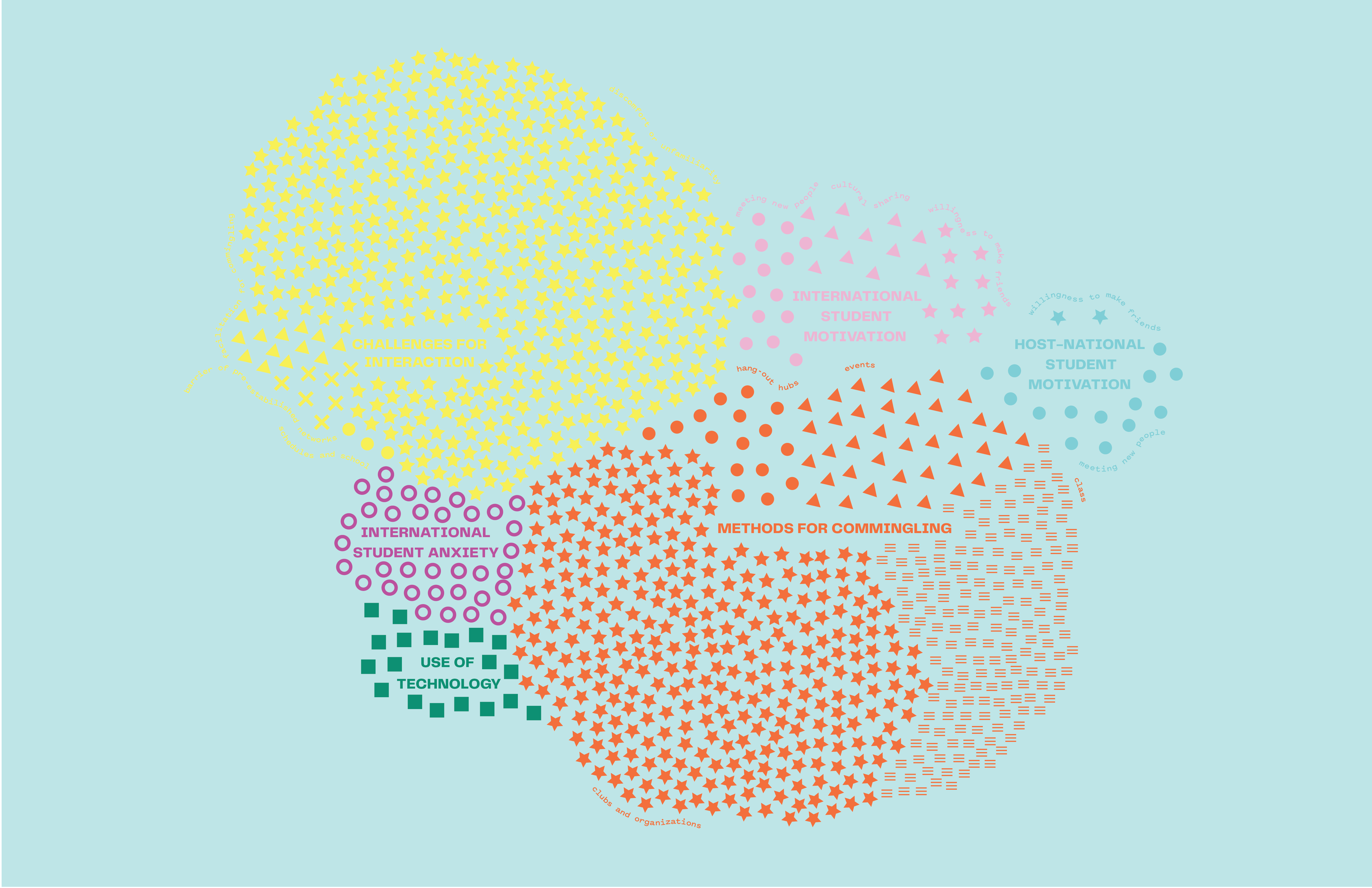
ZOOMING IN
After getting the broad scope of how this system is currently operating, I zoomed into the University of Arkansas
campus to see how the system plays out locally. I interviewed an employee at our International Students and Scholars Office and surveyed some of our international Razorbacks.
After gaining both an expert and personal perspective, I created a code to mark reoccuring themes from the data I collected. Upon visualizing the data, two key themes stood out: the campus lacks convenient and comfortable touchpoints that students will be motivated to participate in, and students in both groups find it challenging to step outside of their comfort zones, limiting their motivation to reach out to members of the other group. So, how do we incentivize students from different cultural backgrounds to go out of their way to have awkward conversations with each other? My answer: stickers!
After gaining both an expert and personal perspective, I created a code to mark reoccuring themes from the data I collected. Upon visualizing the data, two key themes stood out: the campus lacks convenient and comfortable touchpoints that students will be motivated to participate in, and students in both groups find it challenging to step outside of their comfort zones, limiting their motivation to reach out to members of the other group. So, how do we incentivize students from different cultural backgrounds to go out of their way to have awkward conversations with each other? My answer: stickers!
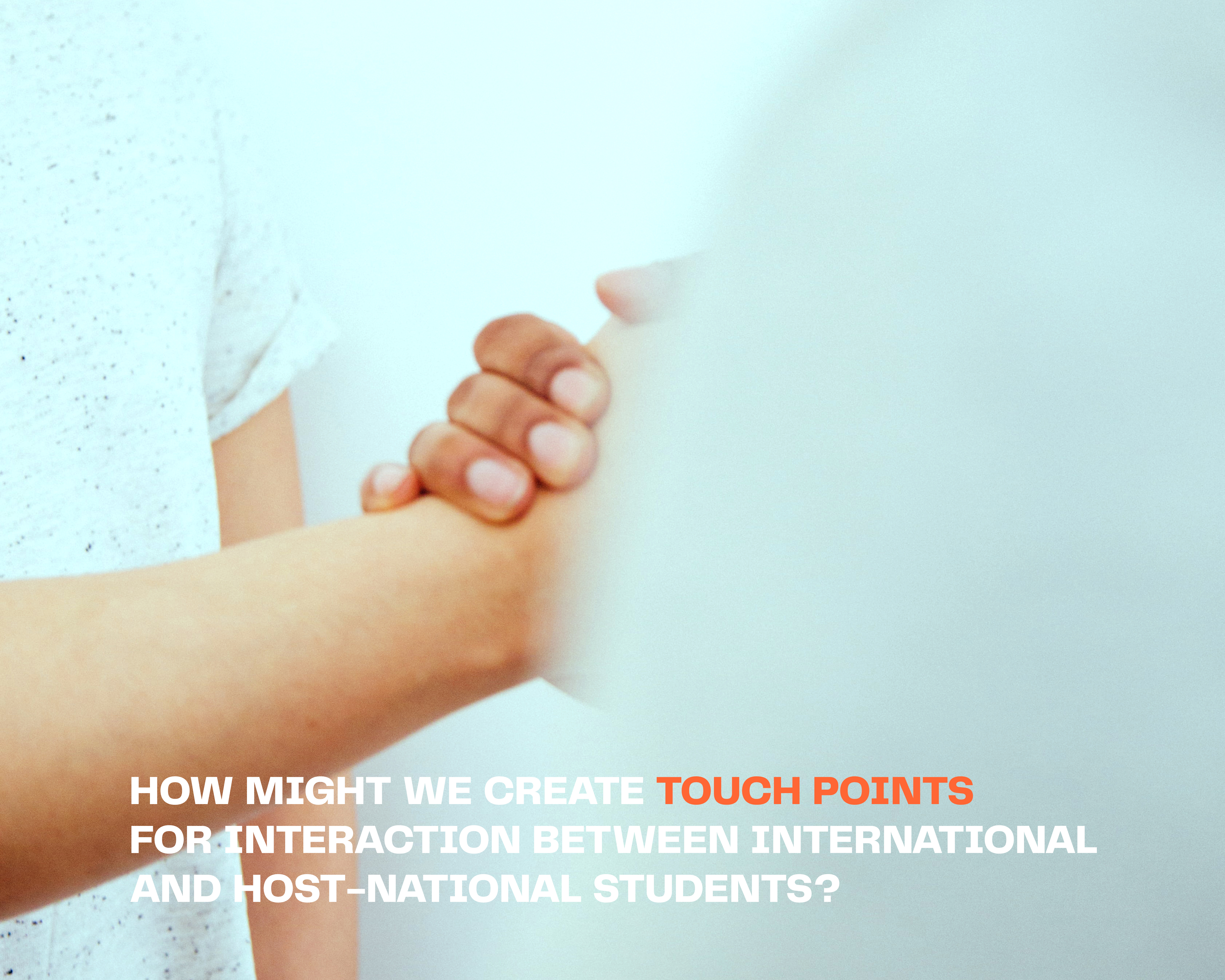
Remember that smiley face sticker you got when you were being
potty trained? Or that dinosaur sticker you got for sharing your toy in
kindergarten? These tiny, seemingly-insignificant pieces of sticky paper
evidently leave imprints on our memories, tattooing these moments of
accomplishment and education in our minds to be recalled decades later. It is
this magical quality of stickers and Fayetteville’s rich sticker culture that
inspired FayetteVoyage.



THE DESIGN INTERVENTION
FayetteVoyage is an ecosystem designed to intervene in the current
relationship between international students and their host campuses. The
idea hinges on sticker collections, released annually, which represent
each individual country the campus is hosting students from. Stickers
can also be designed for participating RSOs, campus departments, and
campus events, especially those hosted by FayetteVoyage. Through this
system, stickers facilitate interaction between international and
host-national students through the design process, events curated to
create connections, and by providing students with a
conversation-starting tool.
Simultaneously, the system drives a campus awareness of the international students we are hosting and small, meaningful facets of their cultures. The stickers also equip international students with jumping-off points to share stories from their countries with their new friends.
Simultaneously, the system drives a campus awareness of the international students we are hosting and small, meaningful facets of their cultures. The stickers also equip international students with jumping-off points to share stories from their countries with their new friends.
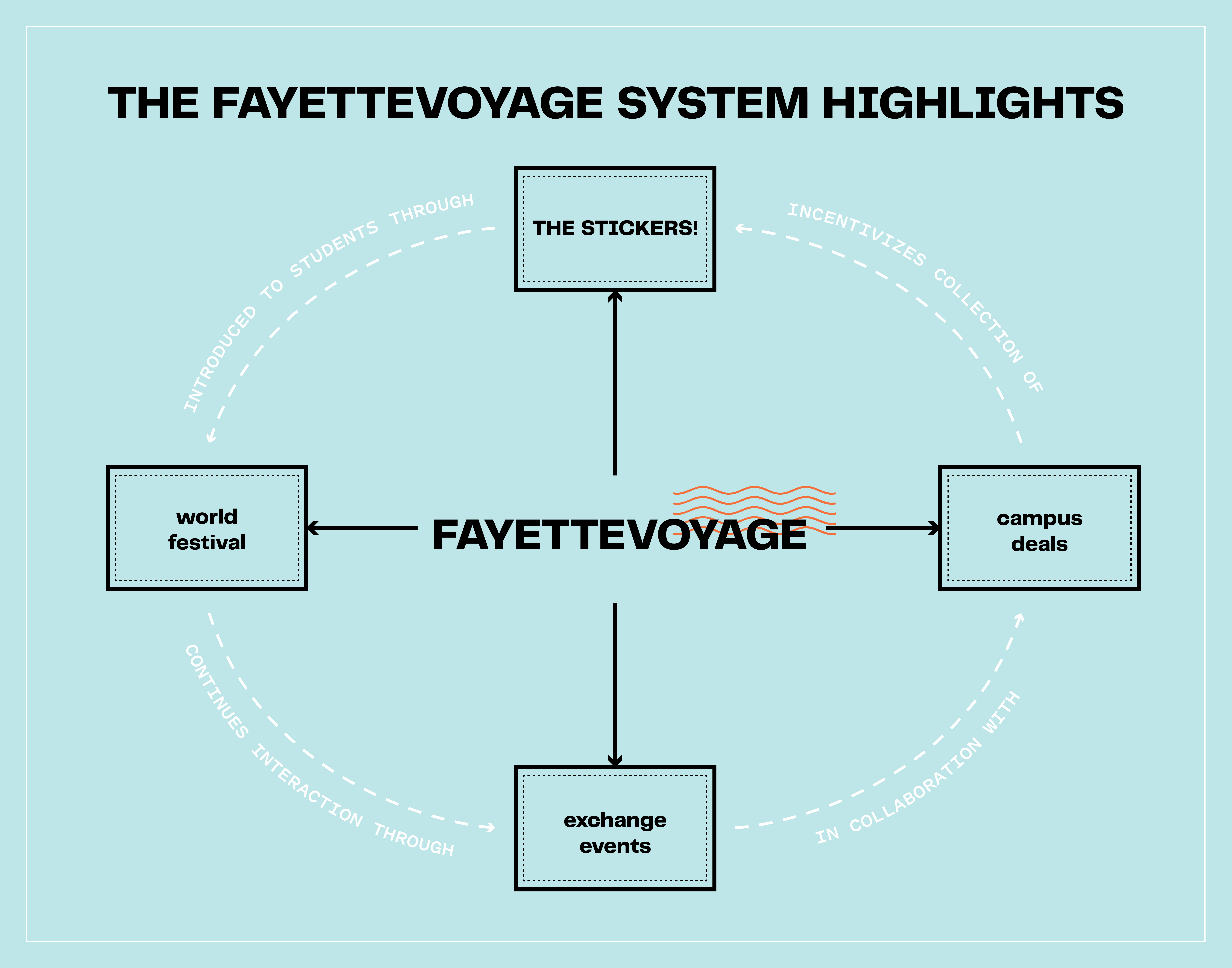
In order to test both the operation of the RSO and the element of
culture exchange, I mocked-up the design process. I began by inviting
one of our current international students to share unique facets of her
home country in written form. I then shared her anonymous notes with a
design student who then translated the notes from her perspective into a
sticker design.
I found this round of user testing to be extremely successful. Not only did it spark the design student’s newfound interest in The Festival of Lights in Lyon, France, but the international student was also excited to see an element of her culture appreciated and recreated by an American student. I learned that the visual element of the stickers is a significant part of the system’s success because it integrates our senses of sight and touch into these interactions. This makes it easier for students to know that they are connecting over the same idea.
I found this round of user testing to be extremely successful. Not only did it spark the design student’s newfound interest in The Festival of Lights in Lyon, France, but the international student was also excited to see an element of her culture appreciated and recreated by an American student. I learned that the visual element of the stickers is a significant part of the system’s success because it integrates our senses of sight and touch into these interactions. This makes it easier for students to know that they are connecting over the same idea.
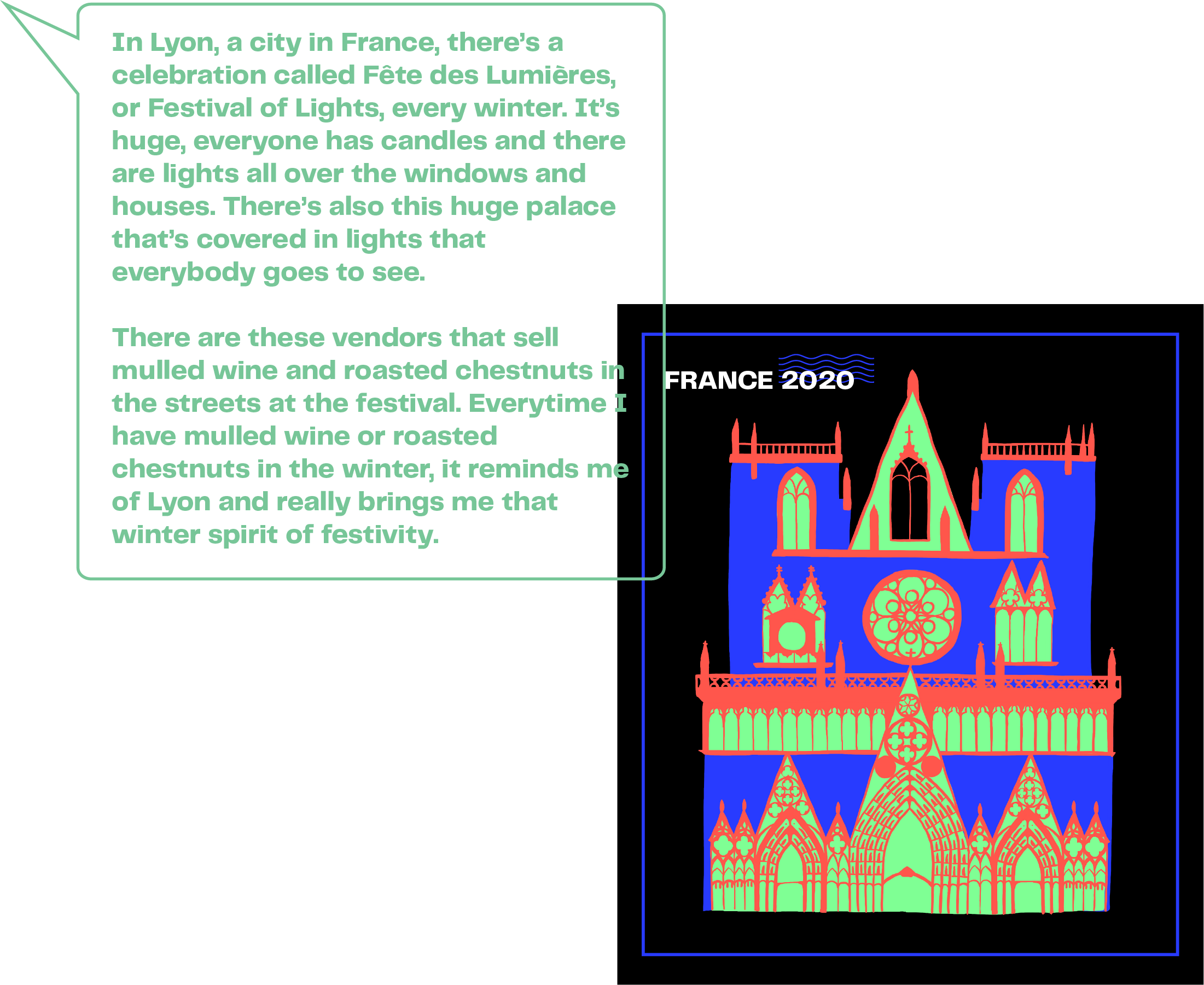

STICKER DESIGNS
Stickers will be designed by students through a FayetteVoyage RSO which
fosters a collaboration between students who describe facets of their
culture and students who turn these stories into artwork for the
stickers. Students will have a significant amount of artistic liberty as
long as they adhere to the FayetteVoyage brand guidelines for a sense
of unity. Once designed, the stickers will be distributed in bulk to the
students they represent to then be traded and distributed to other
students at curated events or through organic interactions.
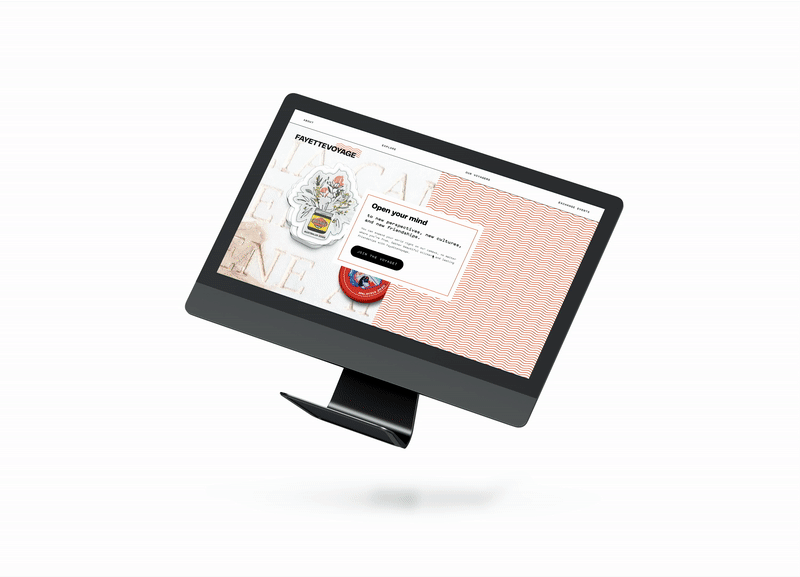
KICK-OFF FESTIVAL
The system will be kicked off at the start of each school year by
hosting a global exchange festival. The union courtyard will be filled
with tents, each one representing a home country of our international
students. International students—and host-national students with ethnic
ties or cultural interest—will volunteer at their respective tents to
talk about the country and its culture with passerby students.
However, there is a scavenger hunt element in order to create an initiative to interact. Students will wear shirts that match their tent and while some students stay at the tent, others will walk around and explore other tents. When a student approaches a tent, they will be asked a very specific trivia question about that culture. In order to find the answer, they will need to find a student from that tent that is walking around and strike up a conversation. Once they have the answer, they can return to the tent to accept that country’s sticker from the annual collection in return.
This event allows students to start their yearly sticker collections so that they are motivated to continue participating throughout the year. It also appeals to incoming freshman by taking place in the Union Courtyard, a space with a lot of visibility and foot traffic. This festival attracts as many students as possible in order to create those initial touch points between students. It could potentially spark new friendships or, at the very least, give international students and host-national students a common experience to bond over at future events.
However, there is a scavenger hunt element in order to create an initiative to interact. Students will wear shirts that match their tent and while some students stay at the tent, others will walk around and explore other tents. When a student approaches a tent, they will be asked a very specific trivia question about that culture. In order to find the answer, they will need to find a student from that tent that is walking around and strike up a conversation. Once they have the answer, they can return to the tent to accept that country’s sticker from the annual collection in return.
This event allows students to start their yearly sticker collections so that they are motivated to continue participating throughout the year. It also appeals to incoming freshman by taking place in the Union Courtyard, a space with a lot of visibility and foot traffic. This festival attracts as many students as possible in order to create those initial touch points between students. It could potentially spark new friendships or, at the very least, give international students and host-national students a common experience to bond over at future events.
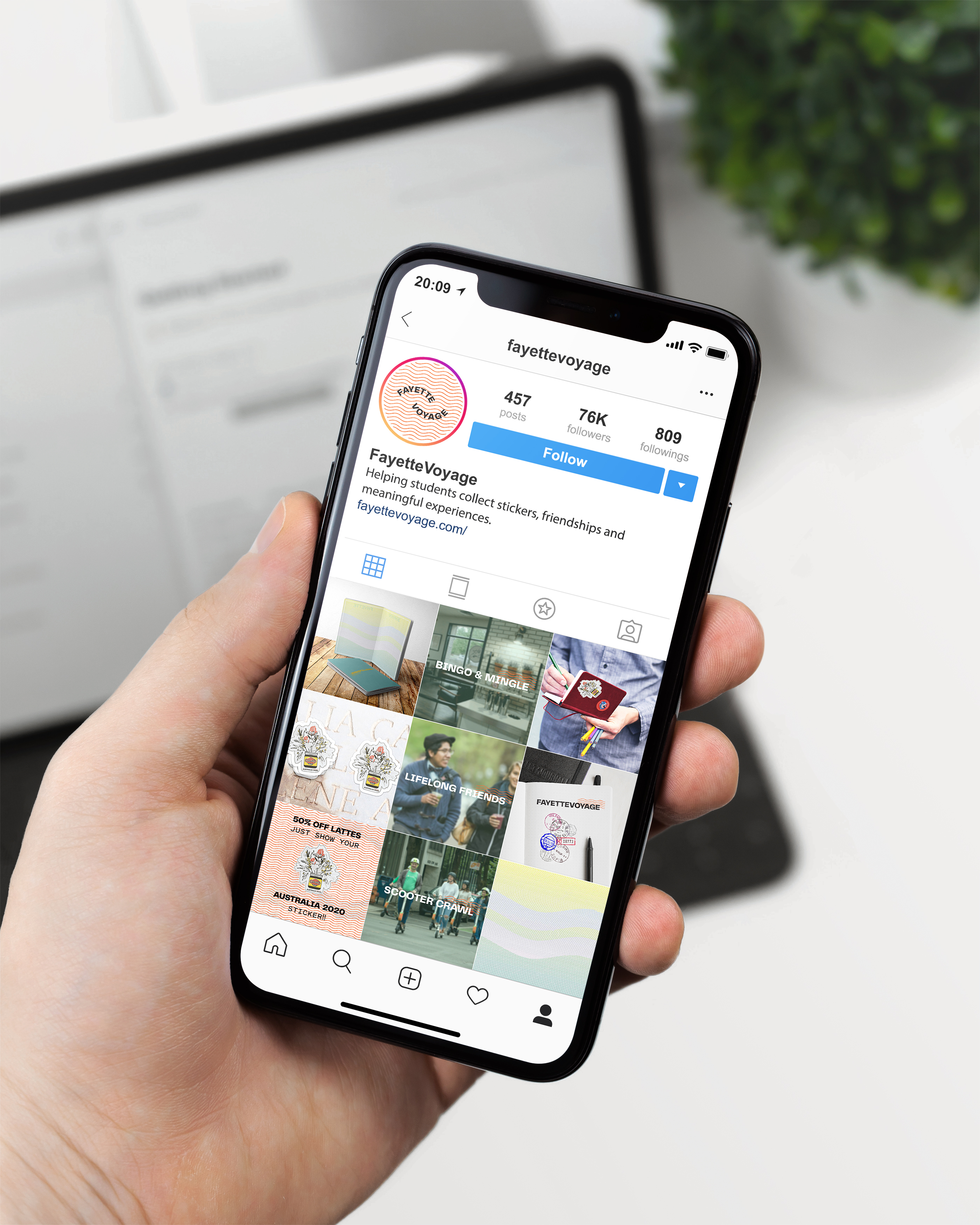
EVENTS
Throughout the year, FayetteVoyage will host various organized events
and activities where stickers can be made, collected, and traded. The
events are specifically designed to create bonding experiences and guide
interesting conversations between international and host-national
students. A few examples:
These events allow students to collect the event stickers distributed exclusively at FayetteVoyage-sponsored events while giving students an environment to easily approach one another to trade stickers.
︎Bingo & Mingling hosted by Hill co. on campus. Students receive a bingo card with their coffee orders and meet new people with prompts like “find someone who uses the metric system” or “find someone who likes pineapple on pizza”.
︎A Campus Scooter Crawl. Students would embark on a guided, scenic ride around the campus and Fayetteville in collaboration with the local e-scooter system.
These events allow students to collect the event stickers distributed exclusively at FayetteVoyage-sponsored events while giving students an environment to easily approach one another to trade stickers.

IMPACT
This complex system will leave an imprint on our campus in many ways.
First, it will provide a better study abroad experience for
international students as they engage with more local students and
cultural experiences. International students will also have the
opportunity to share and talk about their native cultures in an exciting
format, motivating host-national students to participate and gain
broader perspectives.
While these are the primary goals of FayetteVoyage, there are other positive consequential impacts that the system has. It has the potential to spark conversation and friendships between students outside of the facilitated touch points as students recognize each other or become more comfortable interacting. Finally, it provides international students with meaningful keepsakes of their time abroad and host-national students with meaningful keepsakes of their college experiences in Fayetteville.
While these are the primary goals of FayetteVoyage, there are other positive consequential impacts that the system has. It has the potential to spark conversation and friendships between students outside of the facilitated touch points as students recognize each other or become more comfortable interacting. Finally, it provides international students with meaningful keepsakes of their time abroad and host-national students with meaningful keepsakes of their college experiences in Fayetteville.
FINAL THOUGHTS
With FayetteVoyage, students can celebrate their international classmates, neighbors, and friends by proudly sporting the designs on their laptops and car bumpers amidst the rest of their sticker collections. FayetteVoyage stickers represent the stories from the students who inspired the design as well as the sticker holder’s memory of the student they traded with to obtain it.
In order to move past the awkward moments, we have to confront them head-on. We can embrace these unfamiliar conversations and bond over artwork that carries old stories for some and new experiences for others.

